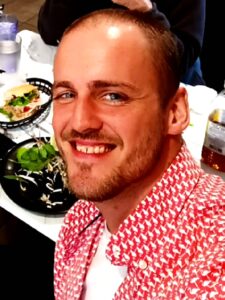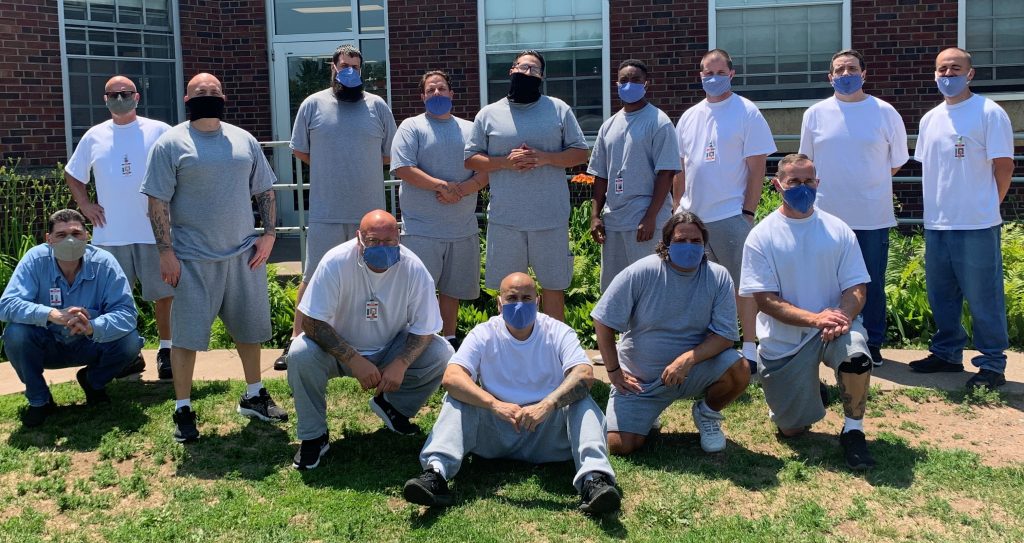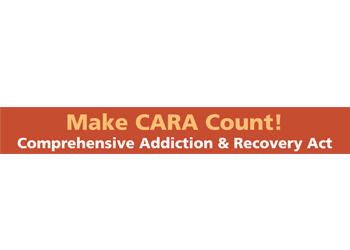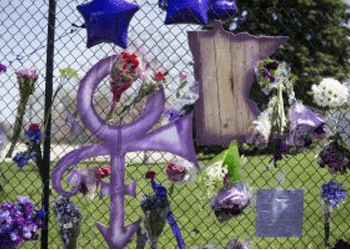Rob is a regular volunteer with Minnesota Recovery Connection. His story is filled with hope for those involved with the justice system and seeking recovery. Although Rob’s sobriety journey started before he found himself incarcerated, his journey to recovery started within prison. Exposed to substance use at a very early age, Rob ended up in a lifestyle surrounded by it and struggled with substance use disorder and mental health issues for years before being incarcerated. Finding recovery in prison laid the foundation for the recovery capital he is now building as a returning citizen, and Rob has achieved so much since reentering the community. In his own words, here is Rob’s Story:

“I had been using substances since I was 11, and I also grew up in a house where people were selling methamphetamines. That was the life that I grew up around. Those behaviors were normalized. I grew up around violence and drugs, and I didn’t know about this “regular world” where people went on picnics and things like that. That was like a fantasy world. My mom always provided the best she could. She always had the best Christmas for us and I still love the holidays because of the effort and joy she put into them for us as kids. Then when I was a little older I started using, and it became a thing where my mom and I bonded.
My first time attempting sobriety and starting my journey into normal life was horrible. I didn’t know how to talk to people, it was so uncomfortable and new. Entering the workforce for the first time in my life, and just learning how to communicate with people and interacting with them – that was a challenge for me. I was about 2 years into sobriety before I felt like I actually knew what ‘normal’ is. I decided I wanted to do what ‘normal’ people do, and I thought to myself that I could drink because it was legal and all of the ‘normal’ people were doing it.
It didn’t happen all at once. At first, it was responsible – I had a few beers here and there. I paid my bills, went to work, and went to the bar. During this time of my drinking, I felt like I could connect with people more easily. I never felt like I could connect without alcohol or other substances. Earlier in my life, substances had never made me feel “stuck,” but now when I was drinking I became stuck. I started having relationship and financial troubles, which made me dive into alcohol more. I was using alcohol to cope in a way I had never been before. I was using it to escape, and I had to do it every day. It became so bad that I couldn’t eat without taking a drink. It is difficult to look back on this part of my life.
Eventually, I got a few more DWIs, and with a previous felony hanging over my head I went to prison. My probation officer was fed up with my behavior and had seen my spiral, again. The hindsight is always so clear. At the time I didn’t know I needed prison but looking back, it is exactly what I needed.
But the eerie part of it is that when the cold prison door shut for the first time behind me, I felt peace.
I can’t explain that feeling more than that because every time I’d hear another inmate talk about the steel doors slamming shut behind them they’d always say how they were so angry, frustrated, or speechless. I didn’t relate to those inmates’ feelings. I felt peace. I finally got the answers to my prayers of asking for peace. I felt it. I realized that I had to do 7 years and that I couldn’t waste this time given to me. I buckled down and made better connections with those around me. And I worked on the stuff that I didn’t want to look at, the parts that I didn’t like that existed deep within me.
In my early days of prison, the most difficult part for me was learning to forgive myself. Slowly I learned what forgiveness was and that it wasn’t necessarily for me to forgive others at the time, but for me to forgive myself. Forgiveness meant I didn’t have to carry around that hurt or anger anymore.
I had to go to prison to find my purpose and myself. As much as I am mad that I went to prison and lost time with family and loved ones, I really needed that time. I needed that time to grow as a person, to find out what I enjoy doing and what brings me joy.
I could finally feel myself healing from the previous abuse and traumas in my life. Life became easier. An inmate asked if I wanted to be part of a program called Building Character and I asked, why me? They said you have a story to tell and it needs to be told. I so am grateful for them because they saw something in me that I couldn’t see in myself, yet.
To know that all the things that make me weak allow me to help other people gives me purpose. Where I used to have shame, I now have courage knowing that sharing my story can help other people.
I had the chance to put on appreciation events for those who served their community without any pats on the back, something I am very proud of. I held sports events, and the feedback I received really made me feel like I was giving back to others. Others told me that the because of the events, “I feel like I can be a part of something,” which truly struck me and fueled my want to help others. Another achievement I am proud of is that we had over 3,000 games without an altercation!
While inside, I wanted to set up a health fair. Unfortunately they had told me that they didn’t have staff resources, so they said that go ahead and do it yourself. I reached out to over 40 organizations. So I got on the phone with Minnesota Recovery Connection and got in touch with Justin McNeal, the Justice-Involved Program Manager. I got to know him through Minnesota Recovery Connection’s Pen Pal Program, and we started talking on the phone regularly. To have that resource was super awesome. The ability to have someone that I could reach out to and get connected with helpful resources, to then help others inside with me, was life-changing. I saw that many other inmates didn’t know what to do and felt unprepared as they were going to be leaving prison. To be able to connect was so meaningful. When I started the mental health program, I asked Justin if we could bring Minnesota Recovery Connection’s Recovery Coach Academy to Moose Lake.
The Recovery Coach Academy was so beneficial to myself and others inside Moose Lake Correctional Facility. It was a twofold thing: it showed me and reinforced what I had learned through trial and error helping guys inside, but also gave me tools like motivational interviewing to help men find their answers on their own and come to their own conclusions. It helped alleviate some frustrations I had with coaching, and it gave me tools to help others process something with gentle guidance. To be able to see someone come to their own conclusions, to see someone’s growth over time, and to see someone blossom, open up and find a love in life that they didn’t know they had is an unforgettable experience.
I taught many classes on conflict resolution, communication skills and helped graduate over 500 people from positive programming in prison. I reached out and helped create a mental health program – now one of the best in the Department of Corrections – which uses peer mentors and tools learned from therapy to apply to real-life situations.
Nowadays, I come home and I work in a way to help other people struggling with substance use disorders, which helps brings complete happiness and joy to my life. People say “dang Rob you’re so happy all the time” and I respond with “yeah my life is so blessed now there isn’t anything to be sad about.” My life isn’t perfect, I do not have my son but I have faith that if I continue to do the right things and continue to do what I am supposed to do, that I will get what I am supposed to have someday.
I volunteer once a week at Minnesota Recovery Connection as another recovery support. Not only did the Pen Pal Program and Recovery Coach Academy broaden my community, but Minnesota Recovery Connection has given me access to more resources and the ability to network on a larger scale. Being present and really putting in the work has given me so much happiness and joy.
I often heard “I didn’t expect you to do the things you needed to do.” To see the reactions of people that I have known for a long time and for them to recognize in the first few minutes that I have changed, gives me so much pride and drive to want to keep doing the work.
When I was released from prison I made my probation officer emotional. She had no words to say, she was completely amazed. She said she couldn’t think of a person’s success story that had moved her that much before. At that moment, I knew that something had changed. In just minutes, someone who I previously thought was out to get me in the justice system had seen the change in me before I saw it myself.
Someone recently asked me why I give back so much. It’s because recovery has given me life and my family back. Recovery has given me hope again, and even if I only get to share that with one person I feel like I will have been successful. And we don’t have to do it alone”





